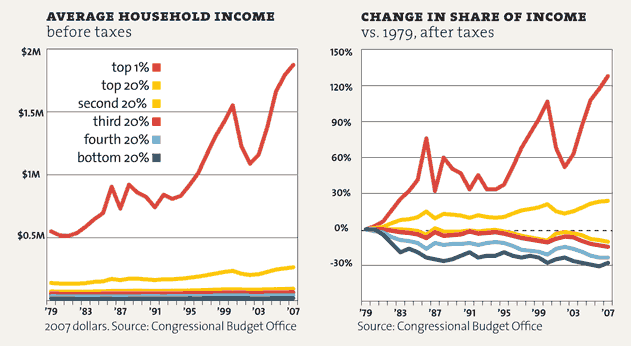- Joined
- Apr 6, 2007
- Messages
- 10,827
- Reaction score
- 5,609
Ok. I think its time to be done here. You haven't been talking about social work for the past half dozen posts, at least. You are talking about socialism. If that has been your agenda all along (which is suspect it has been), then you are entitled to that view and to express it. One of the many great parts about living in a free country, I might add. Another part of free country is that people are free to accumulate as much wealth as the can... AND spend it however they like. Thats what freedom is. That's not a decision other people get to make for you. Charity is a choice, and ideally comes from a place of viewing others in need as equals, not as helpless individuals worthy of your pity because they couldn't possibly do it on their own. How condescending and insulting that is. Newsflash, some people simply have to work harder than other due to natural occurring inequities. This is all part of the sacrifice of freedom. And I wouldn't have it any other way. So, Triken, dont get all drama queeny when most Americans don't agree with your views and express a not undue amount hostility regarding a socioeconomic governing system that had trampled on the human rights of others for the past century, and which the United States Armed Forces has scarified many a brave man fighting.
You have heard from your fellow students, as well as colleagues more experienced that yourself that work intimately with your profession. No one shares your puritanical view of social work or your socialist views of the world. Multiple posters have pointed out that your views do nothing to further your profession's relevance, standing, or role in the current markets. Listen to the feedback. That's a hallmark of good graduate student. Hubris and pretension is not. You should expect this approach/attitude to smacked down by your future supervisors. It is not amenable to the interpersonal and interprofessional collaborations that are necessary to do actual social work.
You have heard from your fellow students, as well as colleagues more experienced that yourself that work intimately with your profession. No one shares your puritanical view of social work or your socialist views of the world. Multiple posters have pointed out that your views do nothing to further your profession's relevance, standing, or role in the current markets. Listen to the feedback. That's a hallmark of good graduate student. Hubris and pretension is not. You should expect this approach/attitude to smacked down by your future supervisors. It is not amenable to the interpersonal and interprofessional collaborations that are necessary to do actual social work.
Last edited:

